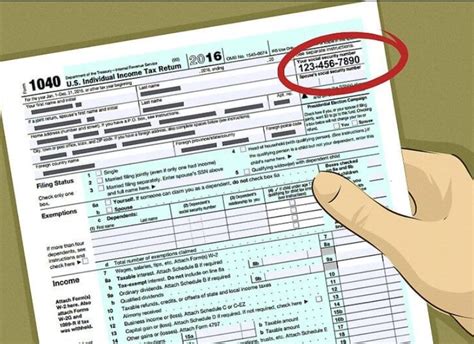Table of Contents
- What is an IRS Taxpayer Identification Number?
- Benefits of Having a TIN
- Types of TINs
- How to Get a TIN
- Maintaining Your TIN
- Penalties for Not Having a TIN
- Using Your TIN Effectively
- Conclusion
What is an IRS Taxpayer Identification Number?
An IRS Taxpayer Identification Number (TIN), also known as an Employer Identification Number (EIN), is a unique nine-digit number assigned by the Internal Revenue Service (IRS) to identify taxpayers. It is essential for individuals, businesses, and organizations to comply with tax reporting and payment requirements.

Benefits of Having a TIN
Obtaining an IRS TIN offers numerous benefits, including:
- Accurate Tax Reporting: A TIN ensures the proper identification of taxpayers, minimizing errors in tax filing and reducing the risk of audits.
- Federal Tax Obligations: Holding a TIN enables individuals and entities to fulfill their federal tax obligations, such as income tax, payroll tax, and excise tax.
- Access to Tax Benefits: Certain tax credits and deductions are only available to taxpayers with a valid TIN.
- Government Services: A TIN facilitates access to various government services, including tax refunds, passport applications, and business registration.
Types of TINs
The IRS issues different types of TINs depending on the taxpayer’s status:
- Individual TIN: A Social Security Number (SSN) for U.S. citizens and permanent residents or an Individual Taxpayer Identification Number (ITIN) for non-citizens.
- Business TIN: An Employer Identification Number (EIN) for businesses, including corporations, partnerships, and sole proprietorships.
- Trust TIN: A trust’s EIN, also known as a trust tax identification number.
- Estate TIN: An EIN for an estate.
How to Get a TIN
Acquiring a TIN is a straightforward process:
Individuals:
- Obtain an SSN by completing Form SS-5.
- If ineligible for an SSN, apply for an ITIN using Form W-7 or W-7(S).
Businesses:
- Apply for an EIN online, by phone (800-829-4933), or by mail using Form SS-4.
Maintaining Your TIN
It is crucial to keep your TIN accurate and up-to-date to avoid tax-related issues:
- Business Name Changes: Report any business name changes to the IRS promptly.
- TIN Deactivation: If your business or organization dissolves, inform the IRS to deactivate the TIN.
- Identity Theft: Monitor your TIN regularly to prevent unauthorized use and report any suspected identity theft immediately.
Penalties for Not Having a TIN
Failure to obtain a valid TIN can result in significant penalties:
- Income Tax Omissions: The IRS may impose a penalty of 5% per month on outstanding income tax balances for taxpayers without a TIN.
- Payroll Tax Non-Compliance: Businesses without an EIN can incur penalties for unpaid payroll taxes.
- TIN Misuse: Unauthorized or fraudulent use of a TIN can lead to criminal charges and fines.
Using Your TIN Effectively
Utilizing your TIN effectively can streamline tax processes and avoid errors:
- Accurate Tax Filing: Always include your TIN on all tax returns, payment vouchers, and correspondence.
- Electronic Filing: Use your TIN to access electronic tax filing systems, such as the IRS e-file platform.
- Reporting Changes: Notify the IRS promptly of any changes to your name, address, or business status.
Conclusion
Obtaining and maintaining an IRS Taxpayer Identification Number is crucial for taxpayers to meet their federal tax obligations and access various benefits and services. By understanding the types, benefits, and requirements associated with TINs, individuals and entities can ensure compliance and avoid penalties. Additionally, using a TIN effectively can enhance tax processes and facilitate accurate reporting.
- Integrate with Business Systems: Ensure your accounting and payroll software is integrated with your TIN to automate tax calculations and reporting.
- Digital Storage: Keep electronic copies of all documents containing your TIN for easy access and security.
- Regular Review: Regularly review your TIN accuracy and update your records as needed.
- Train Employees: Educate employees on the importance of TINs and ensure they use them correctly in tax-related tasks.
- Avoid Common Errors: Pay close attention to the format and ensure the correct number of digits for your TIN.
- Use Online Tools: Utilize the IRS website and online resources to verify your TIN or request a new one if needed.
- Seek Professional Help: Consider consulting with a tax professional or accountant for guidance on TIN-related matters.
- Be Proactive: Stay informed about changes in tax regulations and IRS requirements to ensure ongoing compliance.
- Growing Importance of TINs: The increasing complexity of tax laws and the rise of digital tax filing have amplified the significance of TINs for accurate reporting and compliance.
- Impact of Technology: Technological advancements, such as electronic filing and online tax platforms, have streamlined TIN usage and made tax processes more efficient.
- Expanding Use Cases: TINs are becoming increasingly necessary for non-tax purposes, including obtaining government services, opening bank accounts, and participating in financial transactions.
“The Ultimate Guide to the IRS Taxpayer Identification Number for 2025 is a comprehensive and informative resource for taxpayers seeking clarity on this important topic.” -Forbes Advisor
“This article provides valuable insights into the benefits, types, and proper management of TINs, empowering individuals and businesses to navigate the tax landscape effectively.” -The Balance
“A well-written and timely guide that addresses the latest developments in TIN requirements, ensuring readers are up-to-date on their tax obligations.” -Tax Analysts
“This guide is an essential read for anyone seeking a thorough understanding of IRS Taxpayer Identification Numbers and their implications for tax compliance and financial transactions.” -Investopedia
Table 1: TIN Types and Uses
| TIN Type | Purpose |
|---|---|
| SSN | Individuals |
| ITIN | Non-citizens |
| EIN | Businesses |
| Trust TIN | Trusts |
| Estate TIN | Estates |
Table 2: Penalties for Not Having a TIN
| Offense | Penalty |
|---|---|
| Income Tax Omissions | 5% per month on outstanding balances |
| Payroll Tax Non-Compliance | Penalties for unpaid taxes |
| TIN Misuse | Criminal charges and fines |
Table 3: Strategies for Effective TIN Utilization
| Strategy | Benefits |
|---|---|
| Business System Integration | Automated calculations and reporting |
| Digital Storage | Easy access and security |
| Regular Review | Ensures accuracy and compliance |
| Employee Training | Informed staff for accurate tax processing |
Table 4: Market Insights on TINs
| Insight | Implications |
|---|---|
| Growing Importance | Enhanced compliance and reporting accuracy |
| Impact of Technology | Streamlined TIN usage and tax processes |
| Expanding Use Cases | Increasingly necessary for non-tax purposes |



